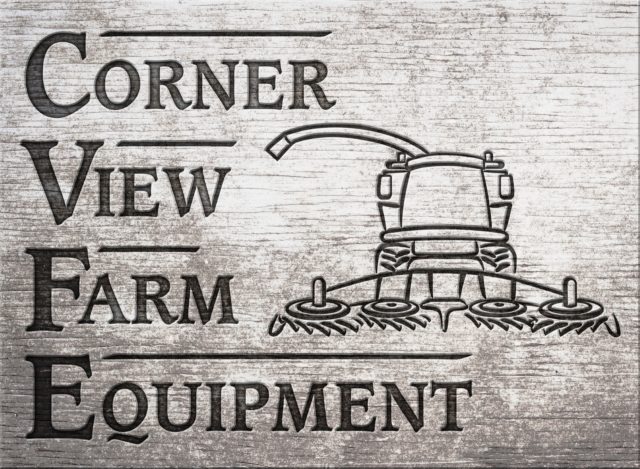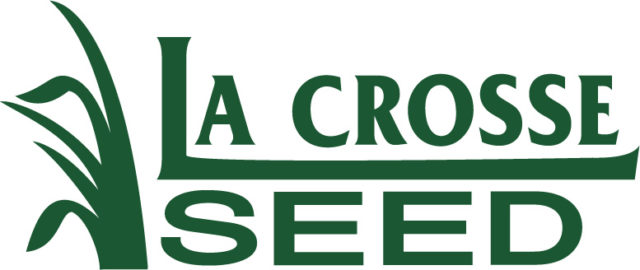B: is for boy. If you have a little boy, you only have to worry about one little boy. If you have a little girl, you have to worry about all the little boys.
C: is for chocolate. My wife has an associate who has a bumper sticker on her car that says, “Will Kill for Chocolate.” “C” is also for cow. Man can survive on alfalfa and grain.
It makes life more interesting to feed the alfalfa and grain to the cow and then eat the cow. A college professor told of trying to raise Holstein heifers as an alternative to beef cattle.
He had a rude awakening. Told us that the nature of beef cattle was to scatter out in the pasture and eat. The nature of a Holstein was to walk the fence line until a weak spot was either discovered or made and then go exploring.
He went on to say that it was really annoying to get a call from the sheriff in the middle of the night informing him that his heifers were out. Especially the sheriff from three counties away.
D: is for dog. The grandkids and their mother adopted a fuzzy rusty-yellow-colored stray puppy. The previous owners, lacking in responsibility, compassion, intelligence, and probably facing a lawsuit for representing themselves as members of the human race, dumped him.
After wondering for a number of months what kind of dog he was, as we watched him grow up into a stout, very fuzzy and friendly medium-sized dog, I told the grandkids what kind of a dog I thought he was. They did not believe me when I told them that Rusty was a “Dudley Dingle Fritz”.
"D" is also for dipstick. This is a very useful part of an engine. By pulling it out once in awhile and observing that there is a little engine oil on the tip, you can avoid a catastrophic failure of the engine due to lack of oil. It’s also been used as a derogatory term, as in, “Why are you hanging around with that dipstick?”
E: is for elephant. Also fond of alfalfa. Also edible after eating alfalfa. Recipes are more difficult to find in these parts than recipes for cooking cows. You also need a larger freezer.
F: is for fortitude, as in “intestinal.”
G: is also for intestinal fortitude. When you don’t know how to spell intestinal fortitude most people will understand what you are trying to say if instead you use “guts.”
H: is for hello. When someone misses an obvious joke, you wave your hand over his or her eyes and say “Hello???” On a given day you can drop the “o” and it becomes a synonym for farming.
I: is for intelligent. Also for idiot. Depending on the weather and the market, one engaging in agriculture as a profession will use one or the other to describe him or herself.
J: is for “jack of all trades.” To make it in this game you need to master most of the trades.
K: is for koshia weed. I have seen several spellings of this, I have no idea which, if any is correct. Koshia weed was brought to our land as a forage crop.
If you swath it when it is about 18 inches tall and then bale it up as you would alfalfa, it is an excellent forage. It has overrun much of the West. It can grow into tumbleweed big enough to eat a Volkswagen.
L: is for lummox. At a rest stop on a trip my 5-year-old granddaughter spied a lady with an Alaskan Husky dog. Being allowed to approach and pet the dog, she told the owner that the dog was a lummox. Gran had to step in and explain that Grandpa had told her that any dog with black lips was a lummox.
M: is for mother. All of us have one. Most of us fail to appreciate our mothers. My mother gets this magazine and is prone to show off her “celebrity” son’s ramblings. The English language has not the words to adequately express my love and appreciation to my mother.
N: is for no. As in, “What part of NO do you not understand?”
O: is for Oreo cookies. No, I will not tell you where my double-stuff Oreos are hidden.
P: is for precipitation. Or rain. (“We are about to be precipitated upon.”) It can be induced by starting the engine on a swather. It has been stated that life on this Earth is possible due to an average of two inches of topsoil and the fact that it rains.
Q: is for quack grass. Similar to Johnson grass. You can pull it up, shake all the dirt out of the roots, and hang it in a fence for two years. Then burn it. Bury the ashes and it will grow.
R: is for reprehensible. This describes people who bale hay so dry that they shatter the leaves on alfalfa and leave most of them in the field. Or so wet that the forage spoils and can burn due to spontaneous combustion.
S: is for supper. Way back when, it consisted of a bowl of bread and milk. It was Mom’s homemade bread, thick sliced and broken into spoon-sized chunks, with milk from Dad’s cows poured over it, usually with specks of cream floating in the milk.
The best topping was Mom’s choke-cherry jelly made purposely runny enough to pour. Most times there was sliced real creamery cheese to go with it.
T: is for truck. When my son Dan told me that he had secured financing to buy a hay truck, I told him that I had mixed emotions. On the one end, I wanted to get the biggest club I could swing and beat some sense into him.
On the other, I was wondering if there were two trucks available. “T” is also for “Tigger,” originally from “Winnie the Pooh”. I married one. Thank goodness!
U: is for unicorn. Unanimous. Uncouth. (Why do you never hear of someone or something being “couth?”)
V: is for victory. Or vivacious. Or value. Or virtue.
W: is for work. Work is the alternative spelling for “luck.”
X: marks the spot.
Y: is for you. You are the master of your own destiny. You become your own master when you come to understand acting instead of re-acting or being acted upon.
Z: is for zoo, which most of agriculture has been for the last year or so. “Z” is also for zzzs, as in “Catch some zzzs,” which I am going to do now. FG













